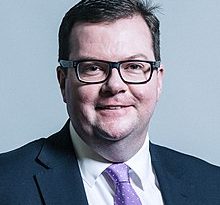Nick Fletcher – 2021 Speech on Down Syndrome
The speech made by Nick Fletcher, the Conservative MP for Don Valley, in the House of Commons on 26 November 2021.
It is a pleasure to follow my hon. Friend the Member for Gedling (Tom Randall) and to be in the Chamber for my first sitting Friday. It is a completely different experience—it is lovely to see the House being so collegiate—and it is fantastic to be supporting the Bill from my right hon. Friend the Member for North Somerset (Dr Fox). Few private Members’ Bills receive so much support and the fact that this Bill has done so is testament to how welcome it is. I have met some of the fantastic families who have campaigned on this issue and I know that the Bill is the culmination of years of work.
Over the past few decades, we have seen significant progress in how we support those with disabilities to live fulfilling lives—notably, through the Equality Act 2010. However, the term “disabled people” refers to such a large and varied group that legislation for those with disabilities needs to be more targeted if it is going to address people’s individual needs. The Autism Act 2009 was a decade ago and it is time that we did the same for those with Down’s syndrome. This Bill will help people with Down’s syndrome and their families to receive public services that are suited to their needs in every interaction that they have with local and national government, from job-centres to social care.
One area where that is particularly relevant is in education. The Down Syndrome Bill will allow parents to choose the best school for their children—whether it is a mainstream school or a special needs school—because, wherever their child attends, the local authority will have to ensure that the education provided is adapted to their needs. As research suggests that children with Down’s syndrome have significantly better educational outcomes in mainstream schools, the Bill could have a transformative impact for some children.
Social care for people with Down’s syndrome is another area that will see a change because of this Bill. Although social care has often been in the news during the pandemic, the coverage has tended to focus on social care for older people. Nevertheless, a significant percentage of people who require social care are of working age and, especially in the case of people with Down’s syndrome, their needs are different from those of older people in care.
People with Down’s syndrome are living longer than ever, which is a wonderful thing, but it does not mean that a care home for a 75-year-old man with dementia is suitable for a 45-year-old woman with Down’s syndrome. I am therefore pleased that, under the Bill, people with Down’s syndrome will be entitled to age-appropriate social care.
The Bill will not solve all the challenges faced by people with Down’s syndrome when interacting with Government bodies, but it will hopefully be a step forward that leads to a marked improvement on the present situation. Once again, I commend my right hon. Friend the Member for North Somerset for introducing the Bill.



